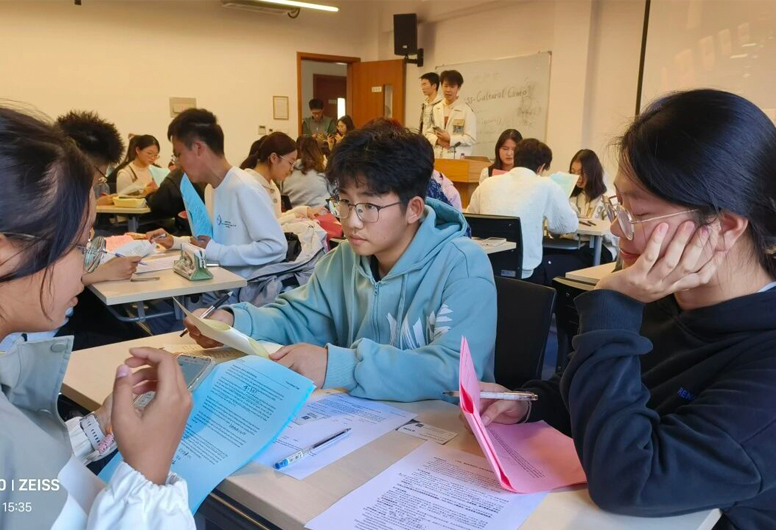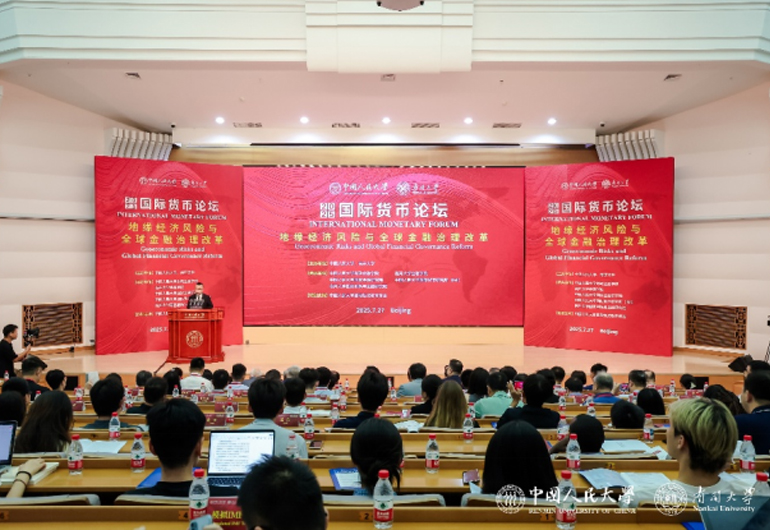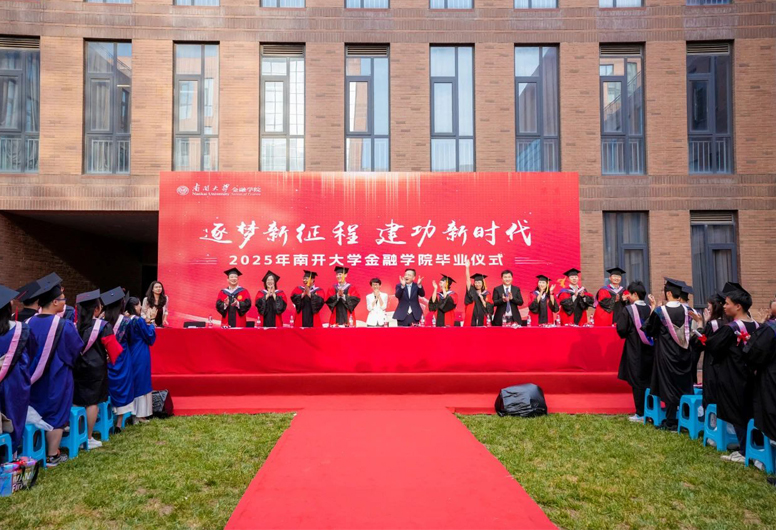Golden Glory | Tenure Associate Professor Li Xinming Published Consecutive Papers in Key International Journals
Since this year, tenure associate professor Li Xinming of our school has published four papers in succession in important international journals such as Journal of International Business Studies, Journal of Business Ethics, Journal of Banking and Finance and Journal of Financial Stability.

“Universal Banking Powers and Liquidity Creation” written by Li Xinming as the co-first author and corresponding author has been accepted for publication by the Journal of International Business Studies, the top international journal in the field of economics and management. Founded in 1970, the journal is a top international periodical in the field of economics and management and enjoys a high academic reputation. It is one of the 24 top academic journals of business schools (UTD 24) rated by the University of Texas (Dallas) in the United States, and also one of the 50 top business school journals rated by The Times (FT 50), with a current impact factor of 11.103. The article provides the first in-depth analysis of the powers of universal banks, which refers to the licensing of banking institutions to provide financial services beyond “ordinary” banking activities. Currently, some countries only allow commercial banks to engage in business such as loans and deposits, while other countries allow their commercial banks to engage in business such as investment banking, insurance underwriting and/or real estate investment. Based on the research theories of risk absorption, corporate finance, relationship banking and economies of scope, the article puts forward hypotheses on whether bank power can increase banks’ ability to create more liquidity to entities. Research confirms that the increased power of universal banks promotes the creation of liquidity within a country and can better serve the real economy. In addition, the article provides further policy recommendations through an in-depth analysis of the examination of banks’ foreign subsidiaries and the impact of international regulatory arbitrage.
“Gender Diversity: From Wall Street to Main Street”, with Professor Li being the co-first author, was published in the Journal of Business Ethics (JBE), which is one of the 50 top business school journals rated by the Financial Times (FT 50). This article pioneered in examining the impact of hedge fund activism on gender diversity. Based on employment history data, the study confirms that activist hedge funds are more likely to appoint people with financial backgrounds to the boards of target companies. However, due to the lack of diversity in the financial industry, newly appointed directors with a financial background are almost all men. This research informs regulatory action on gender diversity. As most regulations attempt to require listed companies to implement gender quotas on their boards, mandatory quotas have increased the demand for female directors. But the current number of qualified female directors does not meet the needs of U.S. corporate boards. This results in public companies either hiring unqualified female directors or accepting female directors who serve on multiple boards at the same time. These directors are less likely to participate in corporate governance, which then leads to poor company performance, so that the social cognitive level may deepen gender discrimination and affect the career development of more women.
“Government guarantees and bank liquidity creation around the world” written by professor Li as the co-first author and corresponding author was published in the Journal of Banking and Finance (JBF), an authoritative international journal on finance. The paper notes that governments around the world often provide guarantees to banks, such as deposit insurance, and often provide additional guarantees during financial crises. Its impact on risk has been well documented in existing research, but its impact on bank output remains largely unexplored. The paper examines how government guarantees for banks affect their critical function of remaining a financial services entity, i.e., continuing to generate liquidity. Through testing the two theories of financial intermediation, “risk absorption” and “financial fragility”, the article confirms that the latter has a greater impact, that is, the government’s guarantee of banks actually reduces their output, measured by the creation of bank liquidity.
“National culture and bank liquidity creation” written by Li Xinming as the co-first author was published in the SSCI Region 1 Journal of Financial Stability (JFS). The article examines the relationship between national culture and bank liquidity creation. Research shows that in countries with a high individualistic cultural atmosphere, because bank managers are adventurous and overconfident, they often create more liquidity by investing in high-risk projects; while in collectivistic societies, banks create more mobility because they have better access to soft information and stronger social connections.
As a tenure associate professor at the School of Finance at Nankai University, Li Xinming is one of the school’s 100 young academic leaders, an outstanding young scholar at the U.S. Federal Reserve Board and the Association of Bank Supervisors, and the chief editor of the banking area of the internationally renowned SSCI journal Research in International Business and Finance. He is the associate editor-in-chief of The Financial Review, Journal of the Eastern Financial Institute the journal of the Society of Finance, and a former consulting expert of the World Bank. His research areas include: banking, corporate finance, digital finance, ESG, etc. Papers have been published in international financial journals such as Journal of Financial and Quantitative Analysis, Journal of Financial Intermediation, and Journal of Corporate Finance.








